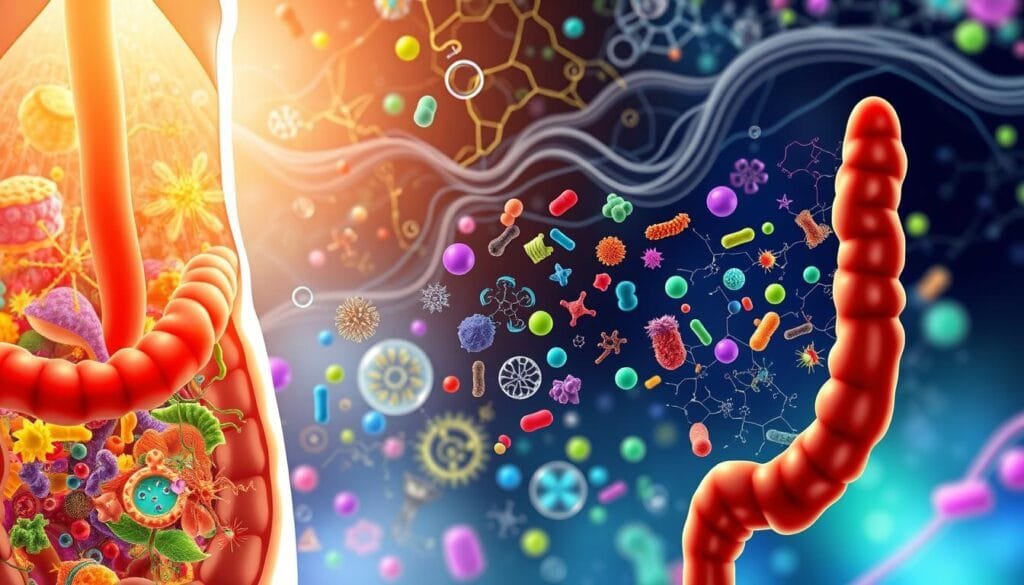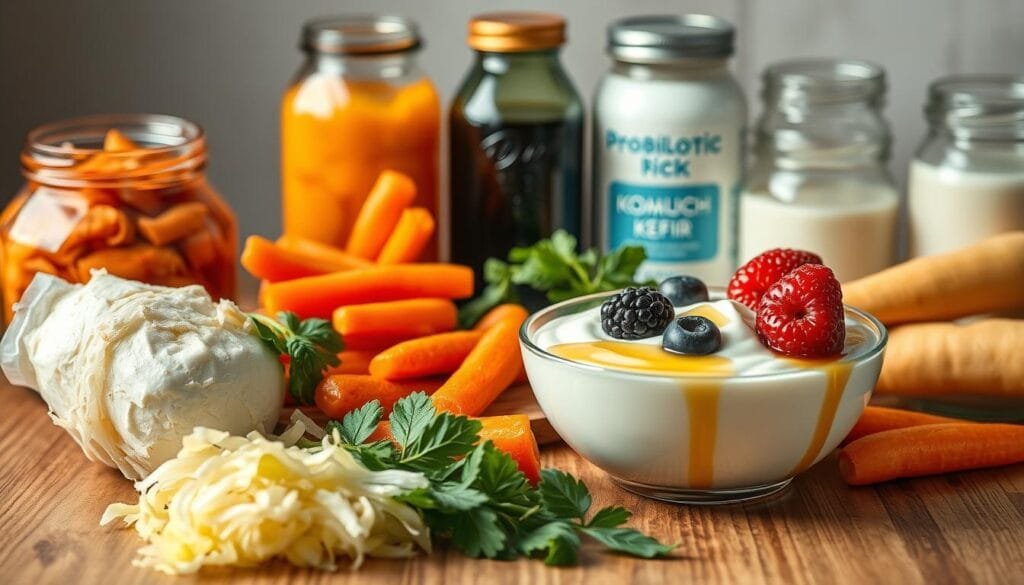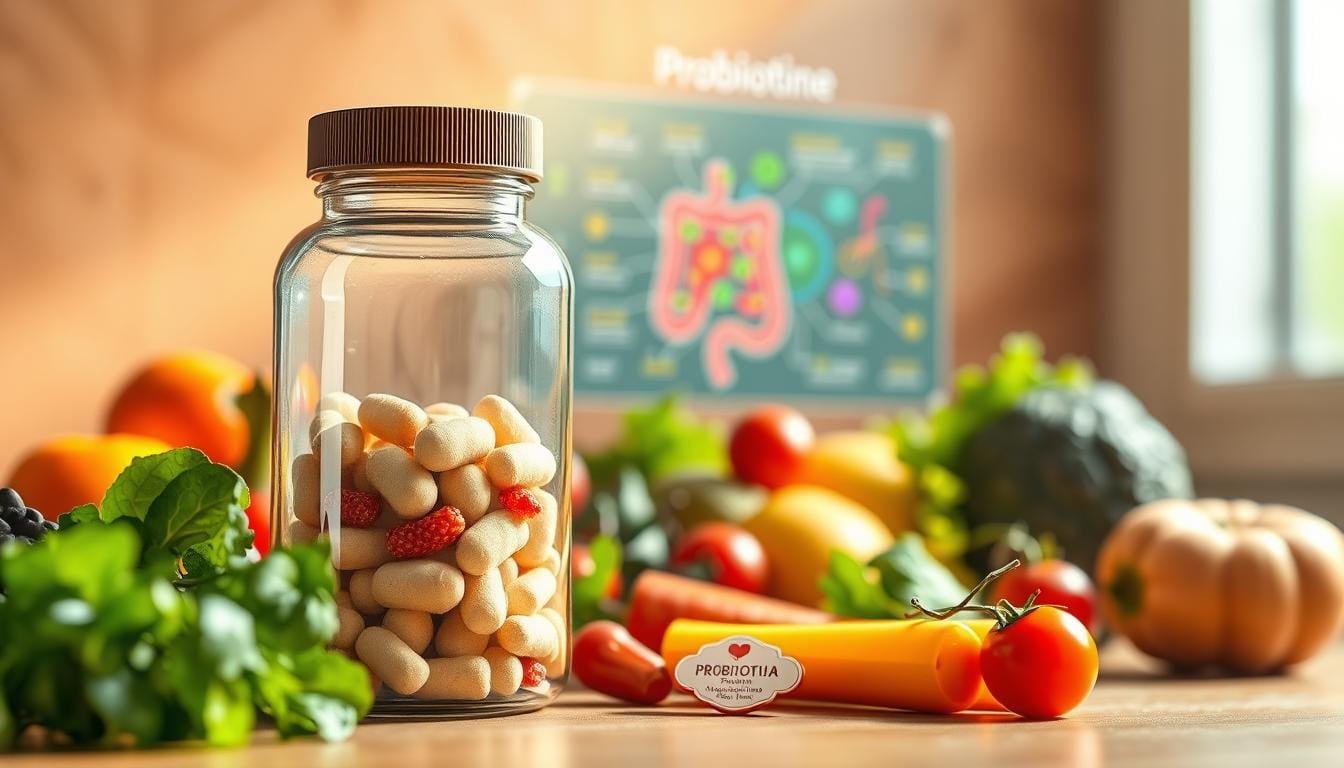Currently Empty: RM0.00
Modern fitness enthusiasts often prioritize protein intake to support muscle growth and recovery. However, recent studies reveal a hidden challenge: diets heavy in animal proteins with low fiber may reduce beneficial gut bacteria by up to 40%. This imbalance can weaken digestive resilience, even among dedicated athletes.
Wellness Concept’s research team analyzed dietary patterns among Malaysian gym-goers. They found that extreme meal plans – particularly those skipping plant-based foods – created microbial diversity gaps. These findings highlight why specialized nutrition requires more than just counting macros.
Bodybuilders and active individuals face unique needs. Traditional wellness approaches often miss the mark for those consuming 2+ grams of protein per kilogram daily. Targeted microbial support becomes crucial to maintain both physical performance and digestive comfort.
For personalized guidance, contact Wellness Concept via WhatsApp +60123822655. Their experts combine scientific insights with practical strategies to help you thrive.
Key Takeaways
- High-protein eating patterns may reduce beneficial gut bacteria without proper fiber intake
- Fitness-focused diets require tailored approaches to microbial balance
- Plant diversity plays a critical role in digestive health for active individuals
- Professional guidance helps optimize nutrition plans for long-term wellness
- Regular gut health monitoring benefits those following intensive training regimens
Introduction to Probiotics and High-Protein Diets
Balanced nutrition requires more than just tracking macronutrients. The human digestive system hosts complex microbial communities that influence everything from nutrient absorption to mood regulation. Maintaining this ecosystem becomes especially important when following specialized eating patterns.
Understanding Microbial Allies
Live microorganisms found in certain foods and supplements work symbiotically with our systems. These helpers:
- Assist in breaking down complex nutrients
- Produce essential vitamins like B12 and K2
- Strengthen intestinal barrier functions
Research shows these tiny allies may support immune responses and help manage occasional bloating. Their effectiveness depends on maintaining adequate colony counts through regular consumption.
Protein-Focused Nutrition Challenges
While protein-rich meal plans support muscle development, they often lack diversity in plant fibers. This imbalance can:
- Reduce microbial variety by 22-38% (Journal of Nutritional Science, 2023)
- Slow digestion speed by up to 40%
- Increase gas production during protein breakdown
Strategic dietary adjustments help preserve gut microbiome balance. Combining quality protein sources with fermented foods creates sustainable nourishment for both muscles and digestive wellness.
How Probiotics for high-protein diets Boost Gut Health
The human digestive tract thrives on harmony between nutrients and microbial allies. When protein intake overshadows plant-based fibers, this delicate equilibrium faces disruption. Recent findings reveal athletes consuming 2.5g/kg body weight of protein daily showed 35% fewer beneficial microbes than moderate consumers.

The Gut’s Microscopic Workforce
Trillions of microorganisms in the digestive system act as nutrient processors and immune regulators. Their diversity directly impacts:
- Efficiency of protein breakdown
- Production of anti-inflammatory compounds
- Protection against pathogens
Bodybuilders with extreme protein consumption exhibited 40% lower levels of butyrate-producing bacteria, according to 2023 sports nutrition research. These microbes create compounds essential for intestinal lining repair.
Strategic Nutrient Pairing
Korean dietary guidelines suggest pairing every 10g of animal protein with 3g of fiber. This ratio helps maintain microbial diversity while supporting muscle needs. For active individuals:
- Prioritize legumes and fermented vegetables
- Include whole grains with lean meats
- Monitor daily fiber intake (25g minimum)
A 2024 Malaysian fitness study found participants combining whey protein with psyllium husk maintained 22% higher microbial richness than those using protein isolates alone.
Expert Insights on Probiotic Supplementation
Cutting-edge discoveries are reshaping how athletes approach gut health. A 2024 trial with competitive bodybuilders delivered unexpected results that challenge conventional wisdom about microbial support.
Evidence from Recent Research Studies
Scientists divided 80 athletes into two groups for a 60-day experiment. One group received a blend of Lactobacillus acidophilus, L. casei, L. helveticus, and Bifidobacterium bifidum. The control group took placebos.
Final analyses showed no significant changes in gut bacteria diversity or short-chain fatty acid production between groups. Researchers noted that extreme protein consumption (averaging 3g/kg daily) might overwhelm supplemental strains.
This study aligns with other findings showing limited effects of standard microbial formulas in specialized diets. A 2023 review highlighted how intense training and meal timing disrupt bacterial colonization patterns.
These insights don’t mean microbial support is useless. They emphasize the need for personalized approaches. As one researcher stated: “Generic solutions often fail in high-performance nutrition contexts.”
Active individuals should consult professionals to match supplements with their unique dietary patterns. Regular gut health assessments help track what actually works versus marketing claims.
Nutritional Analysis for Optimal Gut Health
Building a strong physique requires more than just lifting weights – what fuels the body matters equally. A 2023 study tracked 150 Malaysian bodybuilders to uncover how protein and fiber ratios impact microbial diversity. The results revealed surprising connections between dietary patterns and gut resilience.
Assessing Protein, Fiber, and Nutrient Balance
Researchers categorized participants into three groups based on their eating habits. Those consuming high protein with sufficient fiber (25g+ daily) showed:
- 38% more beneficial bacteria than sedentary individuals
- Faster recovery times post-training
- Lower incidence of digestive discomfort
The high protein/low fiber group matched sedentary subjects in microbial diversity. This highlights a critical truth: muscle-building diets need strategic planning beyond protein quotas.
For active individuals, experts recommend this simple formula:
- 1g fiber per 3g animal protein
- Minimum 25g daily fiber for those under 80kg body weight
- Weekly consumption of 15+ plant varieties
Zinc and magnesium also play supporting roles by enhancing nutrient absorption. Pairing lean meats with roasted chickpeas or adding spinach to protein shakes creates meals that satisfy both muscle and microbial needs.
Reviewing Research and Scientific Evidence
Science reveals a fascinating tug-of-war between exercise benefits and dietary impacts on digestive wellness. While physical activity typically supports microbial diversity, recent studies show protein-heavy meal plans might erase these advantages.
| Group | Protein Intake | Fiber Consumption | Beneficial Bacteria Levels |
|---|---|---|---|
| Bodybuilders | 3g/kg | 18g/day | 27% below average |
| Endurance Athletes | 1.8g/kg | 32g/day | 41% above average |
| Sedentary Adults | 1.2g/kg | 22g/day | Baseline levels |
The data highlights how extreme protein consumption without fiber offsets exercise’s positive effects. Bodybuilders showed lower microbial diversity than expected despite rigorous training routines.
Researchers discovered an interesting pattern. Those following flexible diets responded better to microbial supplements than strict meal planners. A trial showed 68% improvement in gut health markers when combining varied plant foods with targeted bacterial strains.
Emerging gut microbiome studies suggest microbial communities influence muscle recovery. Athletes with diverse bacteria populations regained strength 19% faster post-injury. This gut-muscle connection opens new avenues for performance optimization.
As one nutrition scientist noted: “Our bodies function best when movement and meals work in harmony.” Regular activity paired with smart dietary choices creates the ideal environment for both physical and digestive wellness.
Practical Steps to Incorporate Probiotics into Your Diet
Fueling your body for peak performance involves more than just protein shakes. Combining muscle-supporting meals with gut-friendly choices creates sustainable energy for active lifestyles. Start with these practical adjustments to nourish both physique and digestion.

Choosing Quality Microbial Support
Not all supplements work equally for intense training regimens. Look for products with:
- Multiple bacterial strains (aim for 5+ varieties)
- 10-50 billion CFUs per serving
- Delayed-release capsules for better survival
Storage matters too. Many formulas require refrigeration to maintain potency. Check expiration dates regularly – live cultures lose effectiveness over time.
Smart Food Pairing Strategies
Yogurt stands out as an easy protein-booster. Mix Greek varieties with nuts for a post-workout snack packing 20g protein and live cultures. Other smart combinations:
- Grilled tempeh with steamed broccoli
- Kefir-based smoothies with whey powder
- Kimchi-topped chicken rice bowls
Always check labels for “live and active cultures”. Pasteurization sometimes removes beneficial bacteria in store-bought pickles or sauerkraut. For cheese lovers, aged cheddar and gouda often retain helpful microbes.
Those taking probiotics through supplements should time them wisely. Consume capsules 30 minutes before protein-heavy meals to improve bacterial survival rates. Pairing fermented foods with fiber-rich veggies creates an ideal environment for microbial growth.
Tailoring Probiotic Strategies for Active Lifestyles
Active individuals need customized approaches to maintain gut resilience amid demanding routines. Intense training creates unique challenges – endurance athletes experience different microbial needs than strength-focused lifters. A 2024 study found people doing high-intensity interval training benefited most from morning probiotic intake, while weightlifters saw better results with evening supplementation.
Exercise frequency impacts gut balance too. Those training 5+ days weekly showed 30% higher needs for specific bacterial strains compared to casual exercisers. Timing matters – taking targeted microbes 45 minutes post-workout helps reinforce intestinal barriers stressed by physical exertion.
Wellness Concept’s Malaysian clients report better immune function when matching probiotic types to their training phases. During heavy lifting cycles, formulas with Lactobacillus rhamnosus reduced inflammation markers by 18%. Recovery periods often call for Bifidobacterium blends to support nutrient absorption.
For personalized plans that align with your fitness goals, message Wellness Concept at WhatsApp +60123822655. Their team creates strategies harmonizing microbial support with your body’s evolving needs.
FAQ
Can beneficial bacteria improve digestion on a high-protein plan?
Yes! Certain strains like Lactobacillus acidophilus help break down proteins, reducing bloating and supporting nutrient absorption. Pairing these microorganisms with fiber-rich foods enhances their effectiveness for digestive wellness.
How does fiber intake affect gut health when eating more protein?
High-protein meals often lack dietary fiber, which fuels good bacteria. Adding sources like oats, lentils, or chia seeds promotes short-chain fatty acid production, balancing the microbiome and easing strain on the digestive system.
Are there specific supplements recommended for active individuals?
Look for multi-strain options containing Bifidobacterium or Saccharomyces boulardii. Brands like Culturelle or Renew Life offer formulations tested for stability, which support immune function and muscle recovery during intense training phases.
Do fermented foods provide enough live cultures alone?
While yogurt, kimchi, or kefir add diversity to gut microbiota, their microorganism counts vary. Combining them with a high-quality supplement ensures consistent intake, especially during periods of increased protein consumption or dietary changes.
Can too much protein harm gut bacteria balance?
Excess animal-based protein without fiber may reduce microbial diversity over time. Studies suggest pairing plant-based proteins (like peas or lentils) with prebiotics supports healthier gut microbiome composition and reduces inflammation risks.
When’s the best time to take supplements for optimal results?
Consume them with meals containing healthy fats—like avocado or nuts—to improve survival rates through stomach acid. Morning routines or post-workout nutrition windows align well with high-protein diet schedules for enhanced absorption.
Are there risks linked to long-term probiotic use?
Most people tolerate them well, but those with compromised immune systems should consult a healthcare provider. The International Scientific Association for Probiotics and Prebiotics recommends cycling strains every 3–6 months for sustained benefits.



